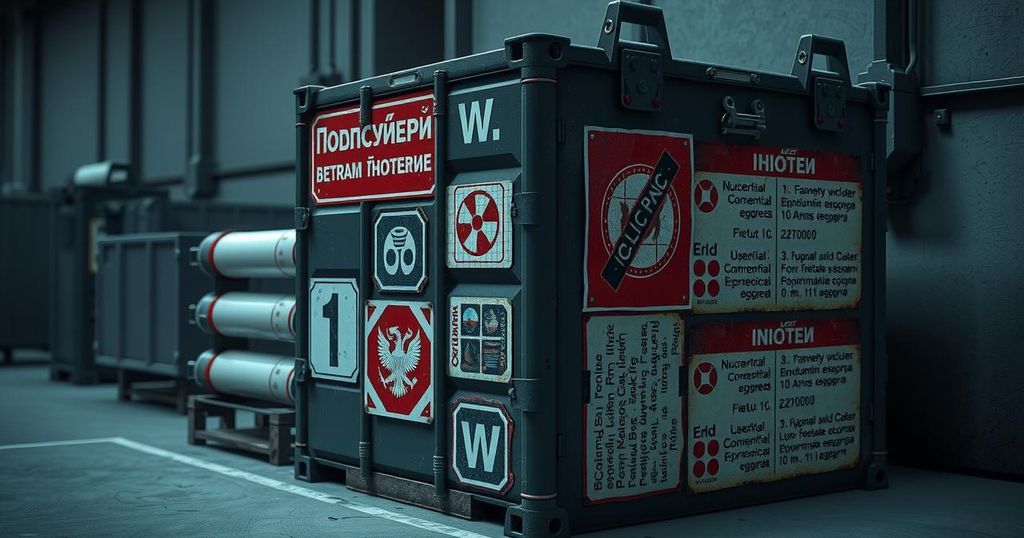Russian Disinformation Tactics Target Ukrainian Military Claims

- Russian intelligence services have launched an attack targeting Ukraine.
- False claims are circulating in Syria about military equipment sales.
- The container features errors in labeling and design.
- One capsule is linked to a rare plutonium isotope.
- The narrative includes an outdated chemical reconnaissance device.
- Video promoting this false narrative carries misleading timestamps.
Russian Disinformation Campaign Targets Ukrainian Reputation
Russian intelligence services appear to be at it again, launching yet another disinformation campaign aimed at tarnishing Ukraine’s image internationally. This time, they have conjured up allegations centered around illicit trade in nuclear materials. According to the Defense Intelligence of Ukraine, these baseless claims have apparently surfaced in Syria, where it is being suggested that military equipment has been purchased from Ukraine’s Ministry of Defense. The specific narrative features a container claimed to hold nuclear capsules marked PU.94244U and U.92, which supposedly denote plutonium and uranium, although how genuine these claims are is highly questionable.
Container Contents Raise Questions About Validity
The contents of this purportedly important container are a mixed bag of problems. The Defense Intelligence has pointed out the numerous signs that suggest this container is nothing more than a poorly executed fabrication. For instance, the Cyrillic script on the container is barely readable, and the Ukrainian Air Force logo—haphazardly affixed with blue insulation tape—raises more than a few eyebrows. Additionally, the technical labeling is rife with errors that further indicate a lack of authenticity. In fact, one of the capsules in question, labeled PU 94244U, is said to correspond to a plutonium isotope so rare that it can only be found in minuscule amounts in the Earth’s crust.
Fabricated Claims Resurface from Previous Campaigns
Adding to the absurdity of the situation, there is even an unrelated mechanical wristwatch found inside the container, which only threatens to undermine the supposed gravity of the claim. Furthermore, the narrative includes an outdated Soviet-era chemical reconnaissance device, purporting it was sourced from Ukrainian military personnel involved in Syria’s radiation and chemical protection operations. This idea seems to echo earlier disinformation strategies that have linked Ukrainian weaponry to dubious operations abroad, painting a consistent pattern of Russian narrative recycling. The video circulating this information carries an Arabic timestamp of ‘13.03.2025,’ presumably a ploy to project an aura of relevance and urgency around the claims, yet the Defense Intelligence reveals that this documentation is merely a rehash of previously utilized Russian propaganda material.
In summary, it becomes apparent that the recent allegations regarding Ukraine’s involvement with nuclear material trading are little more than an elaborate hoax fueled by Russian disinformation tactics. The Defense Intelligence of Ukraine’s analysis uncovers numerous inconsistencies and proof of fabrication. As officials like Andriy Yusov highlight, these attempts are not just mere fabrications; they are deliberate efforts to undercut Ukraine’s reputation on a global stage, particularly amid the shifting dynamics in Syria.







